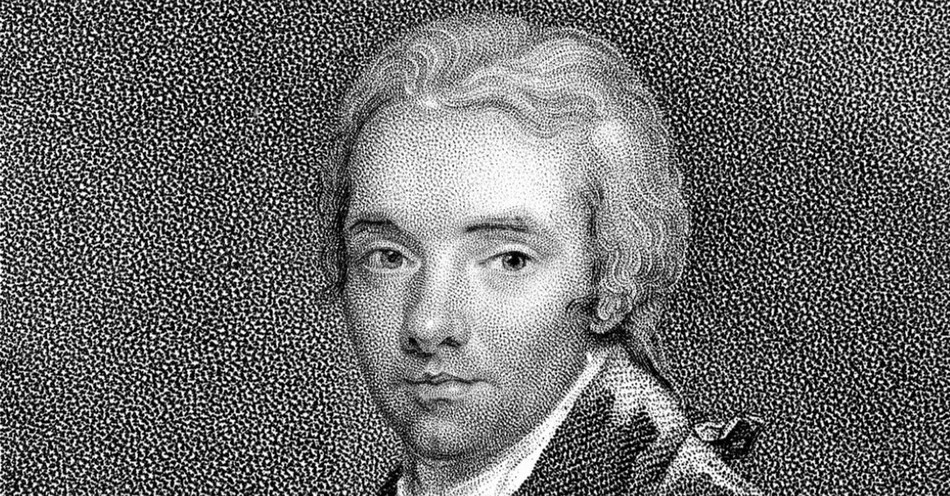"William, come quickly! We need to leave now, or we'll be late for our meeting with Reverend Newton."
It was 1768 in England, and nine-year-old William hurried downstairs where his Aunt Hannah and Uncle William had a carriage waiting.
"I'm coming," William mumbled as he climbed into the carriage. He wasn't happy about wasting his afternoon visiting a preacher. Still, John Newton had been a slave ship captain many years ago. Maybe he would have some interesting stories to tell.
When they arrived at Mr. Newton's house, William hung back shyly.
"And who is this young man?" John Newton asked.
"This is our nephew William. His mother sent him to live with us after his father died," replied Aunt Hannah. "We love him like a son!"
"William, I am very pleased to meet you. Do you like cake?" asked the pastor.
William smiled and nodded while his aunt responded laughingly.
"Of course he does! He may be small for his age, but it seems like all he does is eat!"
"Well, William, let's have tea and cake in the garden and get acquainted."
William followed Mr. Newton into the garden and was soon asking questions about his adventures at sea. Reverend Newton patiently indulged the boy's curiosity before steering the conversation in a different direction.
"Slaving may sound like a grand adventure, but it wasn't. I've repented of my sin of helping to capture and sell fellow human beings. Slavery is evil. God loves all people the same, William."
"Even the slaves?"
"Oh, yes, even the slaves. Even you, William!"
By the end of the day, William and John Newton were friends. After that, William went to see John Newton preach and was soon convinced that slavery was a great wrong. He wrote a letter back home to his mother.
Dearest Mum, I heard John Newton preach in church last Sunday. He has had an interesting life as a slave ship captain, but now he realizes slavery is sinful. He has asked for God's forgiveness for the way he has treated the people of Africa. He said he wants to treat all people with more love. I am thinking about committing my life to Jesus. I'd like you to come with me to hear Mr. Newton preach sometime. Your loving son, Willy.
William's mother, Elizabeth, was not happy to hear that her son was interested in religion. She considered the belief in a personal relationship with Jesus unnecessary and beneath her social standing. She immediately informed William's grandfather, who shared her concern.
"You're right, Elizabeth," he told her. "If that boy wants to be a Wilberforce and inherit any of my money, he'd better steer clear of that kind of religion."
Aunt Hannah was devastated. "Please don't take him, Elizabeth," she and Uncle William begged. They had no children of their own and had grown to love William. But Elizabeth could not be persuaded.
William Sees the Light
Back in his mother's care, young William soon forgot about his introduction to faith. At age 21, he was elected to the British parliament, which is a part of government. He was soon known for his great talent in public speaking. He had a good job, lots of friends, and invitations to the best parties.
William loved being the life of the party by mocking the town's Christians--especially the ones who were just too religious. William's crowd of intellectual friends agreed that serious religion was quite beneath them.
In 1784, 25-year-old William and his family took a vacation to France. William invited along his friend Isaac Milner but hoped Isaac wouldn't talk about his Christian beliefs. But, with so much time together, discussions of faith were bound to happen. Isaac patiently answered William's questions and even gave William a book on faith. Within a few months, William was on his knees speaking to God. He had become a committed Christian, and his life's purpose would soon become clear.
Slavery, A Flagrant Evil
William looked out his window onto the deserted cobblestone street. Pulling his cloak around his face, he darted out the door. No one must know about this secret meeting. The men in Parliament just wouldn't understand. William quickened his pace and slipped down a side street. Glancing once more in both directions, he knocked on the door and was beckoned inside.
"Why Mr. Wilberforce, you've become a fine young man. I've heard your name about town." John Newton still remembered meeting William nearly 20 years before. "Now how can I help you?"
"Reverend Newton, I've come to seek your counsel. I've recently begun to understand the faith you spoke of when I was just a boy. I've become a Christian and I want to do the right thing!"
"Go on," replied the older man patiently.
"It's just that I've prayed, but I'm still not sure what God wants me to do. Maybe if I want to serve God, I should quit my job as a politician."
"Ah, I think I understand," said Newton. "Mr. Wilberforce, God has given you a great gift for speaking, and He's given you a position of influence.
"Well, thank you, sir. So, should I become a preacher or perhaps an evangelist?"
John Newton looked hard at the young man. "Mr. Willberforce, God has already placed you right where He needs you. God needs people in all sorts of occupations to do His work. Just think of all the government officials who will listen to you but would scoff at a preacher like me! God has a great work for you. The road will be long, but He will use you."
With that, William felt at peace. His purpose became even more focused as he later wrote, "God Almighty has set before me a great object: the suppression of the slave trade."
A Lifetime of Labor
William worked tirelessly toward this goal. He fought to educate lawmakers on the evils of slavery and to abolish the practice. Year after year he wrote new laws, but they were always voted down. Finally, after 20 years of work, a law was passed making it illegal to capture Africans and sell them as slaves. But what about those who were already slaves? Their release would take William 26 more years. He refused to quit even when frail health threatened to end his life or when his closest allies gave up.
In July 1833, the 73-year-old William Wilberforce was sick in bed. He was awakened by loud footsteps in the hall. As his bedroom door flung open, he slowly turned his head towards the commotion.
"William, have you heard? Your years of effort have finally succeeded. Parliament passed the Emancipation Bill! Slavery has finally been abolished in the British Empire!"
William Wilberforce raised his head slightly and gave his friend a weak smile. Though his body would never recover, his heart was leaping for joy, thinking of the many slaves who would finally be released to live in freedom.
Make It Real! Questions to make you dig a little deeper and think a little harder.
1. What job would you like to do when you grow up? How can God use you in that job?
2. What laws in your country do you think need to change?
3. England passed laws to abolish slavery in 1833, after many years of debate. What event lead to America's abolishing slavery in 1865? Why do you think it took longer for America to free slaves?
4. Do rules or laws help people to behave better or tempt them to do wrong?
Suggested reading:
1. Fendall, Lon. Heroes of the Faith, William Wilberforce. Barbour Books, 2002.
("William Wilberforce: The Little Man Who Stopped a Big Evil" published on Christianity.com on August 10, 2010)
This article is part of our People of Christianity catalog that features the stories, meaning, and significance of well-known people from the Bible and history. Here are some of the most popular articles for knowing important figures in Christianity:
How Did the Apostle Paul Die?
Who are the Nicolaitans in Revelation?
Who Was Deborah in the Bible?
Who Was Moses in the Bible?
King Solomon's Story in the Bible
Who Was Lot's Wife in the Bible?
Who Was Jezebel in the Bible?
Who Was the Prodigal Son?








